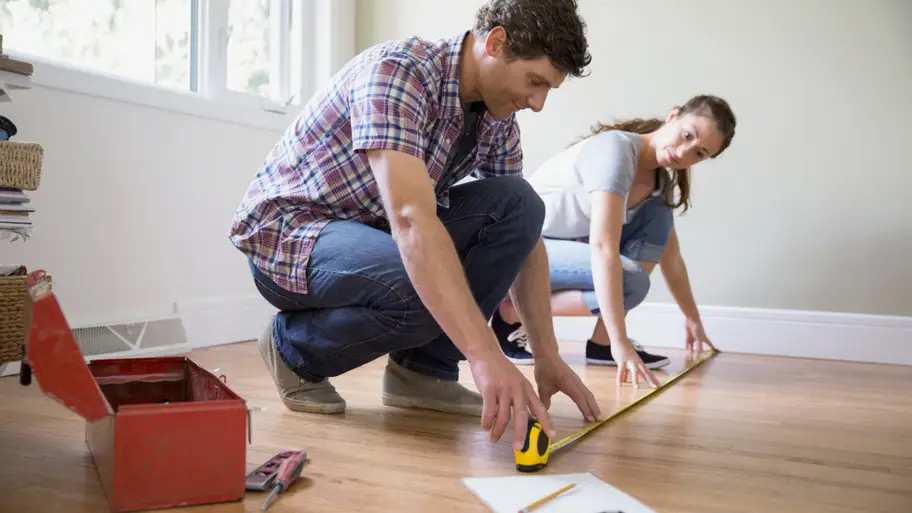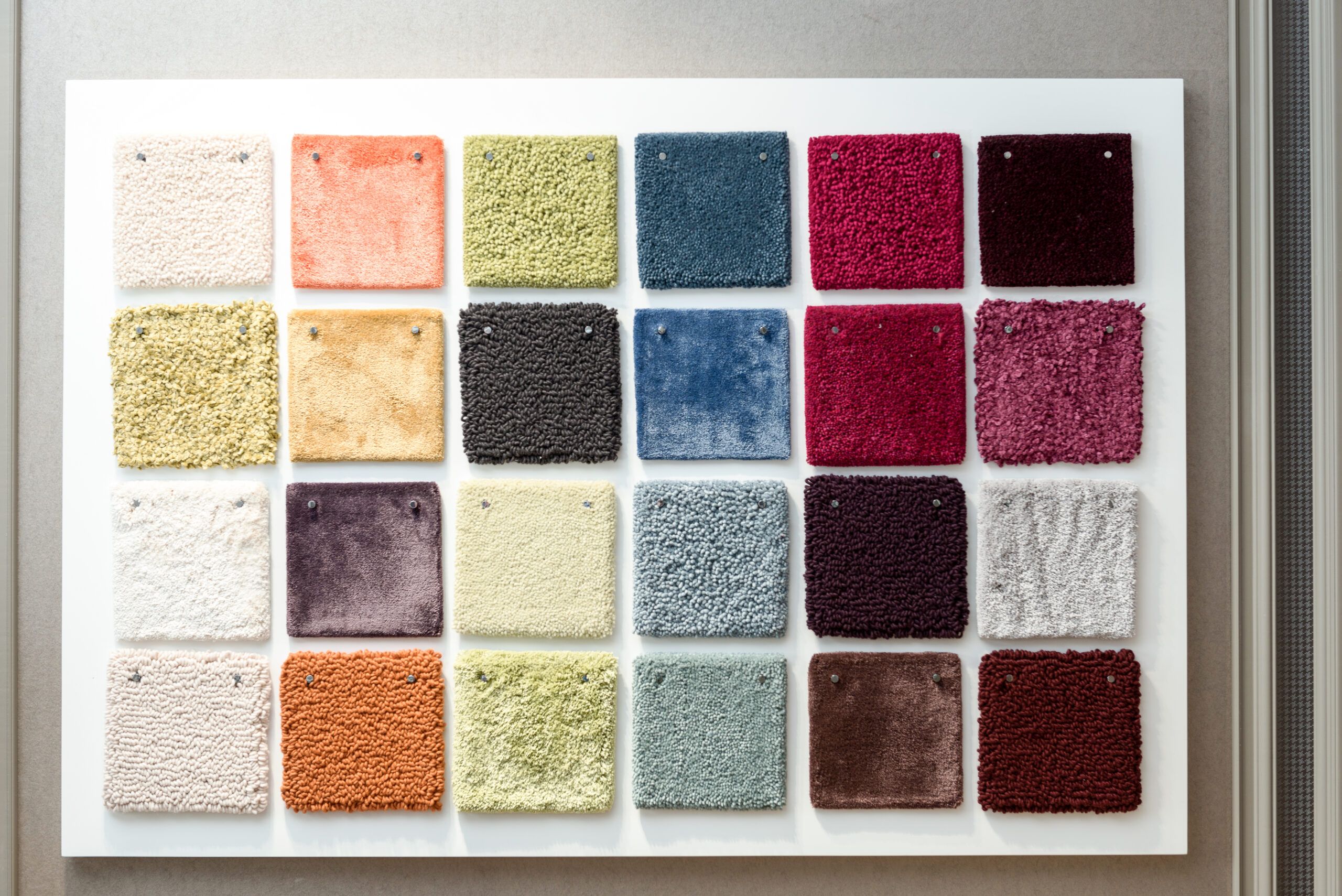- August 1, 2024
Installing a new carpet can transform your home. It adds comfort and style to any room. However, proper preparation is crucial for a smooth, successful installation. Whether you upgrade your space or replace worn-out flooring, knowing how to prepare is essential. It will help you avoid common pitfalls and achieve the best results.
This guide covers essential steps. These include measuring your space and selecting the right carpet. It also involves clearing your room and coordinating with installers. Follow these tips to handle carpet installation confidently. It will ensure your new carpet looks great and performs well for years.
1. Assess Your Space
Assessing your space is crucial for smooth carpet installation. Accurate measurements and thorough inspection ensure a flawless finish.
Measure the Area
Measuring the area is the initial step in preparing for carpet installation in your home. It involves determining the room dimensions where the carpet will be installed. Accurate measurements ensure you buy the right amount of carpet and padding.


It also helps carpet installers plan for a precise and efficient installation process. Taking the time to measure carefully can prevent costly mistakes. It’ll ensure a seamless carpeting experience.
Inspect Subfloor Condition
Before carpet installation, examine the surface for damage, unevenness, or moisture issues. Ensuring a smooth and stable foundation for your new carpet is essential. Address these issues beforehand to prevent problems during installation. It will help prolong the lifespan of your carpet.
You can make any necessary repairs or adjustments to prevent future problems. Remember, a thorough inspection helps ensure a successful and long-lasting carpet installation.
2. Choose the Right Carpet
The type, style, and quality of carpet you choose affect your flooring’s look, feel, and longevity. Considering durability is important. Comfort and design also play crucial roles.
Understand Different Carpet Types
There are various carpet types with their unique characteristics and benefits. Plush, Berber, and textured carpets are the common types. They offer distinct features like comfort, durability, and maintenance requirements.
By familiarising yourself with these options, you can make an informed decision. It should best suit your needs and preferences.
Pick Colours and Patterns
The carpet color and pattern you choose can greatly influence the look and feel of a room. Consider room size, natural light, and existing decor when choosing a carpet.


Neutral tones can create a timeless and versatile backdrop. Bold patterns can add personality and visual interest to a space. Select colors and patterns carefully to achieve a cohesive and stylish aesthetic. It should complement your home’s design scheme.
3. Prepare Your Home
Taking the time to prepare your space adequately minimizes disruptions. It also maximizes your new carpet’s results. Proper preparation ensures a seamless installation experience.
Remove Furniture and Items
Start by clearing the room of all furniture, rugs, and personal belongings. It allows carpet installers to work efficiently and ensures a smooth installation process.
Consider storing furniture and items in another room. Or, temporarily move them to an unaffected area of your home. By clearing the space beforehand, you can ease the installation process. Additionally, you can protect your belongings from potential damage.
Handle Breakables and Valuables
Before the installation begins, ensure fragile items such as vases, picture frames, and electronics are safely stored away. Consider packing breakables in sturdy boxes. Label them for easy identification.
Safeguard valuable items like jewelry, documents, and heirlooms in a secure location. These precautions prevent accidental damage during installation, offering peace of mind.
4. Coordinate with Installers and Provide Clear Access
Begin by scheduling the installation date and time with the carpet company. Share any specific concerns, like furniture removal or pet arrangements.
Before the installation, clear pathways to the installation area. Remove any obstacles or debris to ease the installer’s access. Arrange for convenient parking and entry. It ensures installers can easily transport equipment and materials to your home.
Be present during the installation. Address questions or concerns and guide if needed. Inspect the work upon completion to ensure it meets your expectations. Finally, express appreciation to the installers for their hard work and professionalism.
5. Prepare the Subfloor
Ensure a smooth and level surface. It’s essential for the longevity and appearance of your new carpet. Prepare the subfloor properly. It will help you prevent future issues and ensure a seamless installation process.
Thoroughly Clean the Subfloor
Begin by sweeping and vacuuming the subfloor to remove any dust, debris, or dirt that may be present. Pay close attention to corners, edges, and wall areas where debris gathers. Next, thoroughly mop the subfloor. Use a cleaning solution for stubborn stains or residue.
Allow the subfloor to dry completely before installing the carpet for proper adhesion. Inspect for damage like cracks or unevenness and address it promptly. Properly cleaning and preparing the subfloor ensures a smooth, durable carpet installation.
Remove Old Flooring
Start by clearing the room of all furniture and personal items. Depending on the old flooring type, use appropriate tools. These may include a pry bar, hammer, or scraper for removal. Dispose of old flooring materials properly, following local regulations.
Once the old flooring is removed, thoroughly clean the subfloor for a smooth surface. Inspect for any damage or imperfections. Address them as needed. Prepare the subfloor according to the manufacturer’s instructions. It ensures optimal adhesion and performance of the new carpet.
6. Manage the Installation Process
Taking an active role in overseeing the process helps address issues promptly. Effective management ensures a seamless carpeting experience. It involves coordinating with installers and overseeing the final touches.
Be Present During Installation and Inspect the Work
Your presence lets you address any concerns or questions during carpet installation. It also ensures that the installation proceeds according to your specifications and expectations. Take the time to inspect the work as it progresses to ensure quality and accuracy.
Pay attention to details – seam placement, carpet alignment, and overall finish. If you notice any issues, communicate them promptly with the installers. Seek resolution for any discrepancies. Active involvement in the installation prevents misunderstandings and ensures satisfaction.
After installation, inspect it thoroughly to ensure it meets your standards. Point out any areas needing attention. Finally, show gratitude to the installers for their dedication and professionalism.
7. Post-Installation Care
Don’t forget about post-carpet installation care. It is crucial to maintain the longevity and appearance of your new flooring. Establish proper maintenance routines. This way, you will ensure your carpet remains clean, fresh, and damage-free. Follow simple care practices to preserve the beauty and functionality of your carpet.
Give the Carpet Time to Settle
Allow the carpet to acclimate to its new environment for at least 24 hours. Avoid placing heavy furniture or objects on the carpet during this settling period. It will help prevent indentations or damage. Resume regular foot traffic after this period.
Maintain good ventilation to help dry and remove installation odors. Avoid cleaning or vacuuming the carpet during the settling period. It will prevent disruption of the fibers. Once the settling period is complete, gently vacuum the carpet. Remove any loose fibers and restore its appearance. Regular maintenance and care following the settling period will help prolong the life and beauty of your carpet.
Manage New Carpet Odour
Managing new carpet odor post-installation is essential for ensuring a pleasant living environment. Post-carpet installation, lingering odors from adhesives and materials are common. To tackle this, open windows and use fans to circulate fresh air.
Avoid harsh chemicals; they can worsen odors and harm carpet fibers. Instead, use natural odor absorbers like baking soda or activated charcoal. Regularly air out the room and vacuum the carpet to reduce odor over time. Use these strategies for a comfortable, inviting space post-installation.
8. Move Furniture Back and Rearrange Decor
Moving furniture back and rearranging decor after carpet installation is an exciting step towards revitalizing your living space. Plan the layout, ensuring optimal functionality and aesthetic appeal. Begin by assessing the newly carpeted area. Visualize how each furniture piece will fit the space.
Consider the traffic flow and focal points of the room. Determine the best placement for larger items such as sofas, tables, and cabinets. As you move furniture back into place, take the opportunity to clean and dust each piece. It helps refresh the room further. Experiment with different arrangements. Find the perfect balance of comfort and style. Allow for easy movement and conversation areas.
Don’t forget to add personal touches with decor items like rugs, artwork, and accent pieces. These elements enhance the ambiance. Once everything is in position, step back. Admire the transformation and appreciate the renewed vibrancy of your home. Take pride in creating a welcoming space. Let it reflect your personality.
Maintaining Your New Carpet
After the excitement of carpet installation, ensuring its longevity and beauty becomes a priority. Maintaining your new carpet post-installation is essential. It’s crucial for preserving its pristine condition. With proper care and attention, you can extend the life of your carpet. You can keep it looking fresh for years.
Regular Vacuuming and Professional Cleaning
Regular vacuuming and professional cleaning post-carpet installation are crucial. They maintain the quality and appearance of your new carpet. Vacuuming consistently helps remove dirt, dust, and debris. They can accumulate on the surface and within the carpet fibers. Aim to vacuum high-traffic areas at least once or twice a week. It will prevent dirt from settling in.
Additionally, consider using a vacuum cleaner with a HEPA filter. It captures allergens and improves indoor air quality. Regular vacuuming is important for day-to-day maintenance. Scheduling professional cleaning periodically is equally essential. Professional cleaners have the expertise and equipment. They can deep clean your carpet, removing embedded dirt, stains, and allergens.
Aim to have your carpet professionally cleaned at least once a year. Consider more frequent cleanings if you have pets or experience heavy foot traffic. Extend your carpet’s lifespan by regularly vacuuming and scheduling professional cleanings. It helps keep it looking fresh and vibrant for years.
Ready to Choose Your Carpet?
In conclusion, preparing for carpet installation in your home is a multifaceted process. It requires careful planning and attention to detail. Follow the steps outlined in this guide to ensure a smooth installation. Each step plays a crucial role in achieving the desired outcome.
Remember to communicate effectively with your professional floor installer. Adhere to any pre-installation requirements. Adequately prepare your space to cut disruptions and maximize efficiency. With thorough preparation and proactive measures, you can look forward to enjoying your newly installed carpet. It will bring enhanced comfort and beauty to your home.
At Elephant Floors Shop, we have 100+ carpet types that can meet your requirements. Visit our store in Sunnyvale to explore more carpeting options for your house.
Get your quote from our professionals here!


